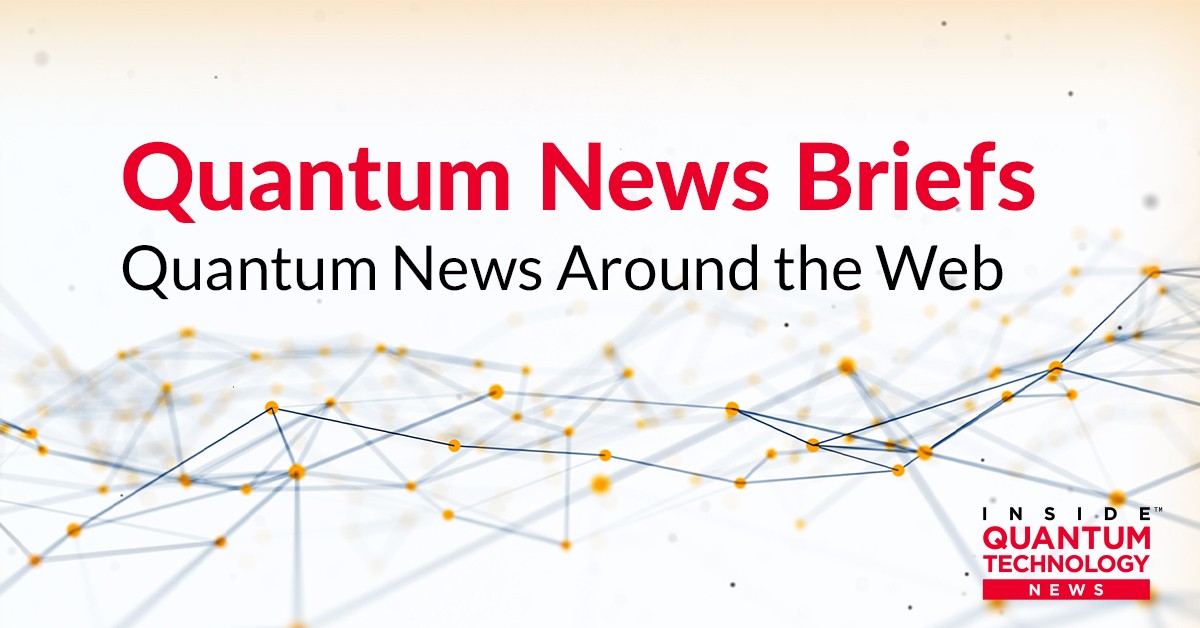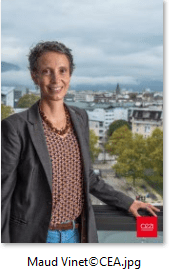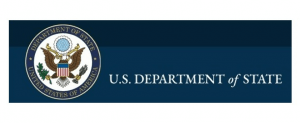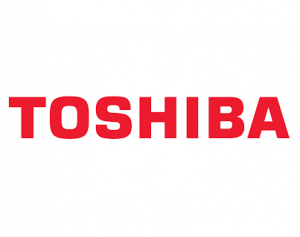Quantum News Briefs December 6: French start-up Siquance targets commercial quantum computing leveraging advanced microelectronics and European semiconductor expertise; University of Maryland College Park & US Department of State will collaborate in quantum technology; Quantware launches foundry services for superconducting quantum chips

Quantum News Briefs December 6 French start-up Siquance targets commercial quantum computing leveraging advanced microelectronics and European semiconductor expertise; University of Maryland College Park & US Department of State will collaborate in quantum technology; Quantware launches foundry services for superconducting quantum chips
*****
French start-up Siquance targets commercial quantum computing leveraging advanced microelectronics and European semiconductor expertise
Siquance, a CEA/CNRS-inspired startup, was launched in Grenoble on the 29th of November, 2022.  Co-founded and directed by Maud Vinet, Siquance aims to develop and commercialize a quantum computer built on advanced microelectronics technology and the expertise of European chip manufacturers. Quantum News Briefs summarizes the announcement below.
Co-founded and directed by Maud Vinet, Siquance aims to develop and commercialize a quantum computer built on advanced microelectronics technology and the expertise of European chip manufacturers. Quantum News Briefs summarizes the announcement below.
As a fabless startup, Siquance aims to become a global leader in quantum technology by developing a quantum computer that is based on the same technological building blocks as standard silicon integrated circuits. To enable this revolution, a disruptive technology solution was essential to transform a classical transistor so that it could handle quantum bits known as qubits (the quantum equivalent of classical bits). By assembling qubits, a new type of calculator can be created to solve numerous problems that are currently beyond the scope of classical computers.
Designing this quantum computing solution on the basis of existing semiconductor technology offers the quickest path to large-scale industrialization. Siquance is organizing its processes according to existing manufacturing capacities, in particular those available in French and European semiconductor factories.
Quantum computing provides a means to solve complex equations that are beyond the capacities of classical computers.As a disruptive technology, it also offers Europe an opportunity to even the playing field with the United States and Asia in terms of digital technology.
Siquance was founded by Maud Vinet (CEO, previously of CEA and an ERC laureate), Tristan Meunier (CTO, previously of CNRS and an ERC laureate) and François Perruchot (COO, previously of CEA). The founding trio bring to the table international expertise on silicon technology, quantum engineering and strategic marketing. Siquance builds on 15 years of research at CEA and CNRS, where the co-founders collaborated together for the past six years. Click here to read complete announcement.
*****
University of Maryland College Park and United States Department of State will collaborate to build capacity in the area of quantum technology
 Acting on behalf of the Department of State, the Bureau of Arms Control, Verification and Compliance has signed a Memorandum of Understanding (MOU) to engage in a public-private partnership with the Quantum Technology Center (QTC) at the University of Maryland. The QTC will supply the Department with technical information and input regarding the latest developments in quantum technologies and the related enabling technologies. It will also facilitate discussions and networking on this emerging technology with other U.S. government and industry partners.
Acting on behalf of the Department of State, the Bureau of Arms Control, Verification and Compliance has signed a Memorandum of Understanding (MOU) to engage in a public-private partnership with the Quantum Technology Center (QTC) at the University of Maryland. The QTC will supply the Department with technical information and input regarding the latest developments in quantum technologies and the related enabling technologies. It will also facilitate discussions and networking on this emerging technology with other U.S. government and industry partners.
The Department of State plays a key role in advancing the United States’ national and economic security interests regarding critical and emerging technologies. As noted in the National Security Strategy, technology is central to today’s geopolitical competition and critical and emerging technologies will reshape economies, militaries, and the world. To address this challenge, the Department will need to understand the convergence of quantum technologies with other emerging technologies and forecast the global impact as the technology develops and is applied. This partnership will ensure that the Department’s international initiatives are informed by a sound technical understanding of this emerging field. Click here to read the original announcement.
For further information, please visit the Department’s Bureau of Arms Control, Verification, and Compliance web page.
*****
Quantware launches foundry services for superconducting quantum chips
 QuantWare, a leading provider of superconducting quantum processors, announced the launch of its Foundry Services to provide a powerful and cost-effective alternative to anyone wanting to fabricate their own Superconducting Quantum Chips without having in-house fabrication capabilities.
QuantWare, a leading provider of superconducting quantum processors, announced the launch of its Foundry Services to provide a powerful and cost-effective alternative to anyone wanting to fabricate their own Superconducting Quantum Chips without having in-house fabrication capabilities.
Fabrication and production of quantum computing hardware currently is very capital intensive, requiring a team of highly skilled fabrication engineers and access to cleanroom facilities. These high barriers of entry limit innovation in the field of quantum computing.
QuantWare aims to lower the hurdle to enter into the quantum computing space by offering its excess fabrication capacity to third parties. This will help the field accelerate research and innovation by making industry leading fabrication processes available to everyone
“Opening up our Foundry capabilities for the design of others massively lowers the barrier to build a quantum computer”, said Matthijs Rijlaarsdam, Co-Founder and CEO of QuantWare. “It also prepares our company for future large-scale processors that, like in Semicon, will feature IP from different sources. We believe it to be a big step towards our mission to accelerate the advent of the quantum computer”.
Click to read complete announcement in Pbotonics Online.
*****
Interview with Toshiba Europe’s Quantum Technology Division
 Soon there will be national networks of quantum-secured fibre linking major cities, Andrew Shields,the head of Toshiba Europe’s Quantum Technology Division in the Cambridge Science Park. Capacity’ Media’s Alan Burkitt-Gray recently interviewed Shields; that interview is summarized below.
Soon there will be national networks of quantum-secured fibre linking major cities, Andrew Shields,the head of Toshiba Europe’s Quantum Technology Division in the Cambridge Science Park. Capacity’ Media’s Alan Burkitt-Gray recently interviewed Shields; that interview is summarized below.
“We do have customers that are interested in long distances,” the head of Toshiba Europe’s Quantum Technology Division says. He tells me that he and his colleagues are working on how to send quantum-secured data over long distances. “One of the ways we’re studying is teleportation.”
The physicist means what you think he means: transferring data from one physical point to another without travelling through the space between the two locations.
Unlike most forms of communication technology, which effectively deliver a copy of data (such as your voice or an image) to another location, Shields says that using entangled photons to transmit data “destroys the information at the first location and recreates it in the second. You send it over a long distance, but you can’t make a duplicate.”
How far can data be sent using this method? “Ultimately, over any arbitrary distance,” Shields says. The reason scientists are working on using quantum physics to power encryption is that quantum computing promises to completely undermine current data communication security.
One of the issues that Toshiba’s QKD trial brought up was that data sent along a quantum-secured link kept drowning out the quantum keys sent along the same fibre which were supposed to secure it.
“The [main] data is 10 million times bigger than the separate quantum signal,” says Shields. This means that when both forms of data were carried along the same fibre, noise and interference from the main data’s optical signal would overwhelm that of the quantum data – unsurprising, given we’re talking about a few photons here. To solve this, Toshiba developed a multiplexing technique to separate the signals.
“Now we’ve developed a filtering technique, so we can work on the same fibre,” Shields says. “It means we can transmit the quantum information with the traffic.”
This has enabled dense wavelength division multiplexing (DWDM) fibre networks to be used for quantum-encrypted data traffic, says Shields, “so we can develop networks for much lower cost”. He adds that “the trial in London uses the existing fibre with a multiplexing system”. Click here to read interview in-entirety.
*****
Sandra K. Helsel, Ph.D. has been researching and reporting on frontier technologies since 1990. She has her Ph.D. from the University of Arizona.
























